Remember amid the headlines: there’s no such thing as a “natural” disaster
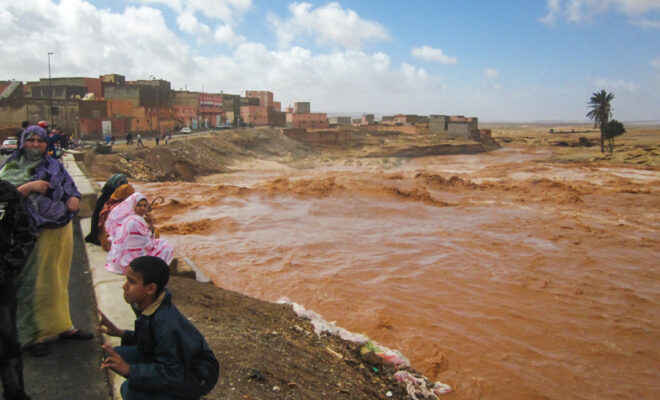
Poor countries aren’t disproportionately vulnerable to climate change because of geography or bad luck.
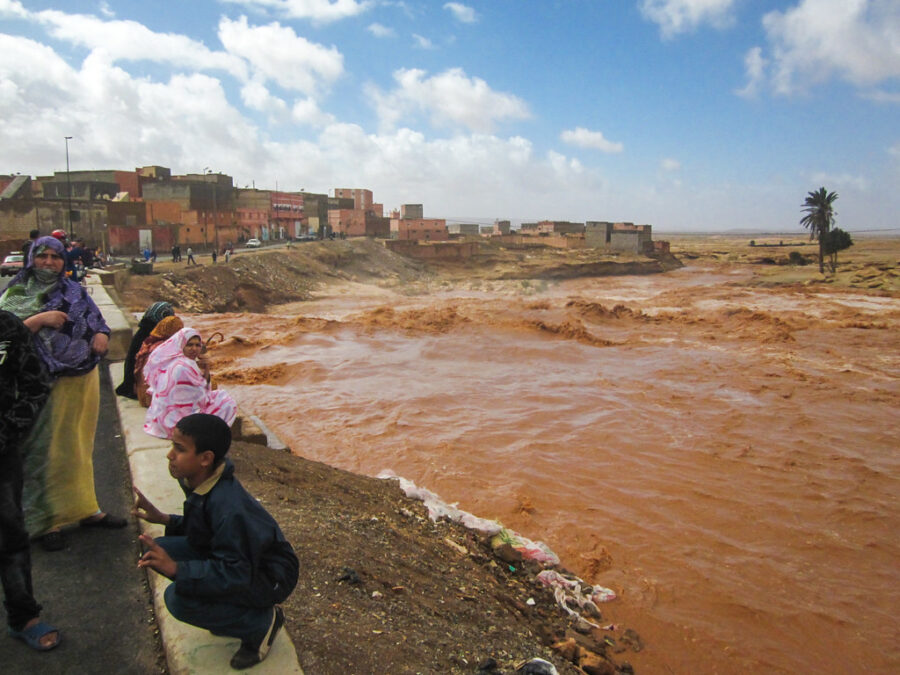
Large waves hit the coast of Guelmim, Morocco. Credit: jbdodane.
In early-May, huge floods swept through South Kivu in the eastern Democratic Republic of Congo (DRC). Torrential rains razed entire villages, leaving such devastation that emergency coordinators claimed it was “impossible to imagine anyone had been there”. Within hours, over 400 people were confirmed dead while thousands more were still missing. Speaking in its wake, UN Secretary-General António Guterres spoke of “yet another illustration” of the climate crisis’ “disastrous impact on countries that have done nothing to contribute to global warming”.
This tragic story has become all too familiar: under climate change, natural disasters are surging and disproportionately impacting poorer countries. Of this there can be little doubt. Yet as the “what” of this narrative has become more commonplace, the “why” has almost been lost.
In the usual telling, the politics of climate change – hundreds of years of domination, environmental degradation, profound power imbalances, violently persistent inequalities – tend to disappear from view. So too does the economy, that network of interconnections that structures every aspect of our lives and governs our relationships with nature.
What is left is a notion of a direct relationship between the atmosphere and humans. Everything else, we are told, is a political issue, removed from the scientific objectivity of climate modelling. Climate change is reduced to a question of natural forces, carbon parts per million, acts of God.
This consensus – uttered by everyone from presidents to professors – is flawed. The truth is that climate change is not causing more natural disasters, because disasters are not natural in the first place. Natural hazards like storms, floods, and droughts do not necessarily lead to devastation and death. They do so, and become disasters, when they meet vulnerability and economic inequality.
A hurricane, for instance, means something completely different when it hits Singapore as opposed to East Timor. In the former, it means rain down a windowpane and a few hours spent inside. In the latter, it can spell life-threatening danger. Alternatively, take floods. The Netherlands and Bangladesh are geographically similar in terms of their natural vulnerability, but flooding has not been a serious threat in the European country since the national dam building programme of the mid-20th century.
When it comes to climate change impacts, money matters. The North has it, the South doesn’t – and the geography of climate risk reflects that.
This is vital to understand for two reasons. Firstly, it draws us away from the idea of disasters being natural to one that recognises that they are shaped by economics. It is not a coincidence that the countries most vulnerable to climate change are also among the world’s poorest; rather, their vulnerability to natural hazards can be seen as a direct outcome of their economic vulnerability.
This, secondly, leads us to a more important conclusion still: that if environment risks are a product of our global economy, then disasters are an economic choice. Natural calamities are a side effect of our grossly unequal economic system.
On the floor of the global factory
This unequal system is nowhere clearer than in the DRC, where the recent floods swept away hundreds of lives. This vast country boasts enormous reserves of natural resources that it extracts at huge scale. Copper, cobalt, and gold – all of which power the global economy – account for over 95% of the DRC’s goods exports.
And yet, over 60% of the country’s population live on less than $2.15 a day. Moreover, the very people that mine the minerals that end up in electronics and jewellery in the Global North are among the most at risk. In recent years, scores of artisanal miners have been killed in repeated flooding that has caused mine shafts to collapse.
This fate is also no mere cruel coincidence. Five centuries of economic integration have drawn the DRC – and Africa more broadly – ever more closely into the global factory. In this arrangement, materials are mined, grown, or manufactured in one nation; transported to another for processing; and then shipped elsewhere to be sold. It is a system hundreds of years in the making, evolving through the slavery-fuelled “empire of cotton” and supercharged by the modern logistics of container shipping and communications. Today, whole nations take their place in a production line that spans – and increasingly defines – the globe.
Extractive economies at the bottom of this chain find it almost impossible to escape their position. On a basic level, exporting raw materials adds less economic value to a country than processing, manufacturing, or reselling those materials. According to one study, the average country in the Global South has to export a good that required 13 units worth of labour to create in order to afford an import that required just 1 unit of labour from the Global North. In other words, it is economically inevitable that countries that sell resources get relatively poorer as countries that use those resources get relatively richer.
Poor countries’ disproportionate vulnerability to natural hazards is a direct result of these historic, political, and economic dynamics. Specific examples of this at play abound in Africa, but also beyond. Take Highland tea plantation workers in Sri Lanka. They produce a crop introduced by British imperialists and are still, in many cases, employed by UK companies. These many thousands of workers grow a plant that has reshaped the landscape and that fuels an industry worth over $200 billion. Yet their place in the global factory means they barely earn a few dollars a day and live with the ever-present threat of deadly landslides. These disasters have become 25 times more common since 1990, an outcome of not just the changing climate but past and present global inequalities that induce tea pickers to work in high-risk areas without ever providing the funds to protect them.
From the perspective of the rich world, sites of overseas production remain a “terra nullius”: empty land in which companies may operate as they wish. Local governance lacks the capacity to push back, in large part due to its unfavourable position within this global system. Meanwhile, national governments in the Global South are wary of confronting companies on which they greatly depend. Historically entrenched economics – and the global distribution of environmental vulnerability – cannot be upended by the South alone.
What all this shows is that while two centuries of carbon emissions may have increased the risk of natural hazards, five centuries of domination shape the context they meet. People in the Global South are not disproportionately vulnerable to climate change so much as they are disproportionately vulnerable to inequities created by our global economy. To reiterate: there is no such thing as a natural disaster because disasters are not natural in the first place. As such, tackling climate change without addressing politics, economics, and power is merely gardening.


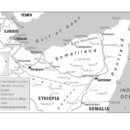
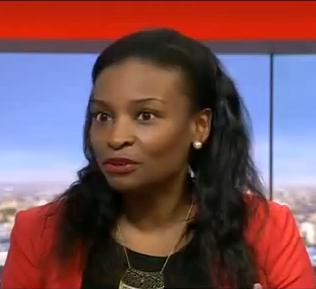
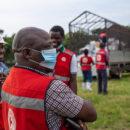


Very well written and researched, but what is the solution to this? How do you change this balance that has been built and nurtured for centuries now?